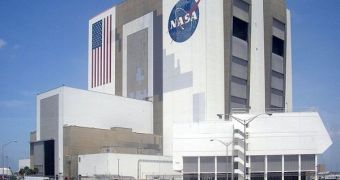The American National Aeronautics and Space Administration (NASA) has received $600 million from the US House of Representatives, as part of an economic stimulus plan passed on January 25th. However, the Senate version of the bill is a bit different and grants NASA in excess of $1.5 billion, of which $500 million are destined to shorten the time gap left between the retirement of the shuttle fleet, in late 2010, and the completion of the Constellation project, in 2015 at best.
Nevertheless, the downside of the new bill passed by the House is that is offers absolutely no money to the agency's human spaceflight programs, which comes as a real shock to everyone. This virtually leaves NASA incapacitated in that respect, although it has received money to repair its facilities that were devastated by the Ike hurricane last year. The sum alloted for this process is around $50 million, and an additional $150 million will be spent in the field of aeronautics, for innovation and new breakthroughs.
Yet, the bulk of the funding, as stated in the House's American Recovery and Reinvestment Act of 2009 (H.R. 1), consisting of roughly $400 million, is destined exclusively to climate change research programs, aimed at determining exactly what our influence on the environment is, as well as the pace at which the destruction of our planet occurs. The agency's Earth science satellite programs will also benefit from this funding, which the House sees as being in the country's interest at this point.
The House Rules Committee has rejected an amendment to the H.R. 1 bill, sponsored by freshman Republican Suzanne Kosmas (D-Fla.), which stated that the space agency should get at least $2 billion more, in order to accelerate the development of the next-gen space craft, and to bring the final touches to Constellation closer to 2013-2014, rather than 2 years later. In theory, between 2010 and 2015 at best, the US will be left solely dependent on Russia's Soyuz rockets for its manned missions, which is a situation many in Washington consider to be unacceptable.

 14 DAY TRIAL //
14 DAY TRIAL //